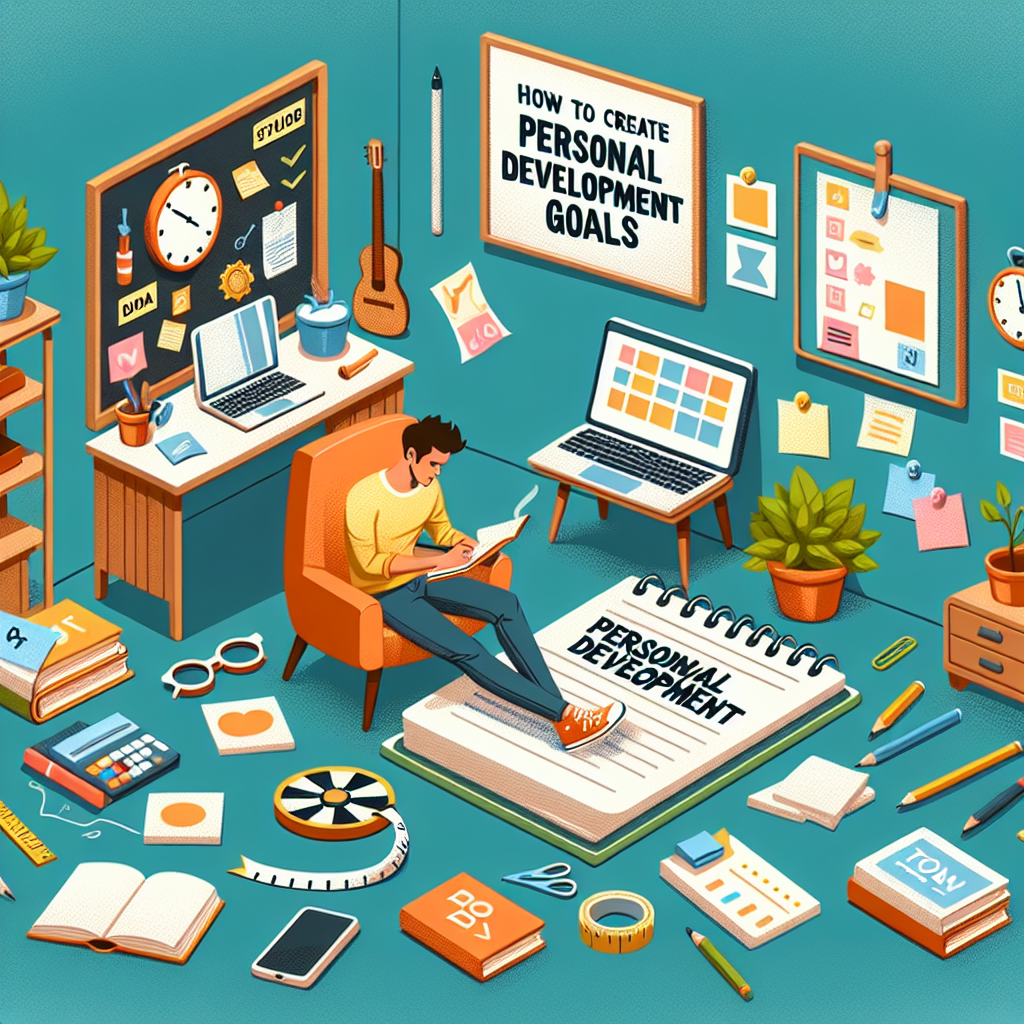Setting personal development goals is crucial in achieving growth, success, and fulfillment in various aspects of our lives. However, creating meaningful goals and actually sticking to them can be a challenge for many people. In this article, we will discuss how to create meaningful personal development goals and provide tips on how to stay committed to them.
Why are personal development goals important?
Personal development goals are important because they help us identify areas in our lives that we want to improve, grow, or change. By setting specific goals, we give ourselves direction, purpose, and motivation to work towards achieving the life we desire. Personal development goals also provide a sense of accomplishment and satisfaction when they are accomplished, boosting our self-esteem and confidence.
How to create meaningful personal development goals?
When creating personal development goals, it is important to make them specific, achievable, and meaningful. Here are a few steps to help you create meaningful goals:
1. Reflect on your values and priorities: Begin by reflecting on what is important to you in life, what you value, and what areas you would like to improve or develop. This will help you identify the goals that align with your values and priorities.
2. Set clear and specific goals: Once you have identified the areas you want to work on, set clear and specific goals that are measurable and achievable. For example, instead of setting a vague goal like “improve my finances,” you could set a specific goal like “save $500 per month.”
3. Break down your goals: Break down your goals into smaller, manageable tasks or steps. This will prevent you from feeling overwhelmed and make it easier to track your progress.
4. Create a timeline: Set a deadline for achieving your goals. This will help you stay focused and motivated to work towards your goals consistently.
5. Write down your goals: Writing down your goals increases accountability and commitment to achieving them. Place your goals in a visible place where you can see them regularly, such as a vision board or daily planner.
How to stick to your personal development goals?
Sticking to personal development goals requires discipline, consistency, and motivation. Here are some tips to help you stay committed to your goals:
1. Create a plan: Develop a detailed action plan outlining the steps you need to take to achieve your goals. Break down your goals into smaller tasks and schedule time each day to work on them.
2. Stay focused: Avoid distractions and stay focused on your goals. Set boundaries, limit time-wasting activities, and prioritize tasks that move you closer to achieving your goals.
3. Stay motivated: Remind yourself of the reasons why you set your goals in the first place. Visualize the outcomes of achieving your goals and use positive affirmations to stay motivated.
4. Seek support: Surround yourself with people who support and encourage your goals. Share your goals with a friend, family member, or mentor who can provide accountability and motivation.
5. Track your progress: Measure your progress regularly to stay on track and make adjustments if necessary. Celebrate small wins along the way to stay motivated and committed to your goals.
Frequently Asked Questions (FAQs)
Q: How do I know if my personal development goals are meaningful?
A: Meaningful personal development goals are aligned with your values, priorities, and long-term aspirations. They should inspire and motivate you to take action towards achieving them.
Q: What should I do if I am struggling to stick to my goals?
A: If you are struggling to stick to your goals, reassess your goals to ensure they are realistic and achievable. Break them down into smaller tasks, seek support from others, and stay motivated by focusing on the benefits of achieving your goals.
Q: How often should I review and revise my personal development goals?
A: It is recommended to regularly review and revise your personal development goals to ensure they are still relevant and aligned with your current priorities. Set aside time weekly or monthly to assess your progress and make any necessary adjustments to your goals.
Q: What are some common obstacles to achieving personal development goals?
A: Common obstacles to achieving personal development goals include lack of motivation, procrastination, self-doubt, distractions, and fear of failure. It is important to identify these obstacles and develop strategies to overcome them.
In conclusion, creating meaningful personal development goals and sticking to them requires self-awareness, commitment, and perseverance. By following the tips outlined in this article and staying focused on your goals, you can achieve personal growth, success, and fulfillment in various aspects of your life. Remember, personal development is a journey, and it is important to be patient, consistent, and compassionate towards yourself as you work towards becoming the best version of yourself.





Leave A Comment